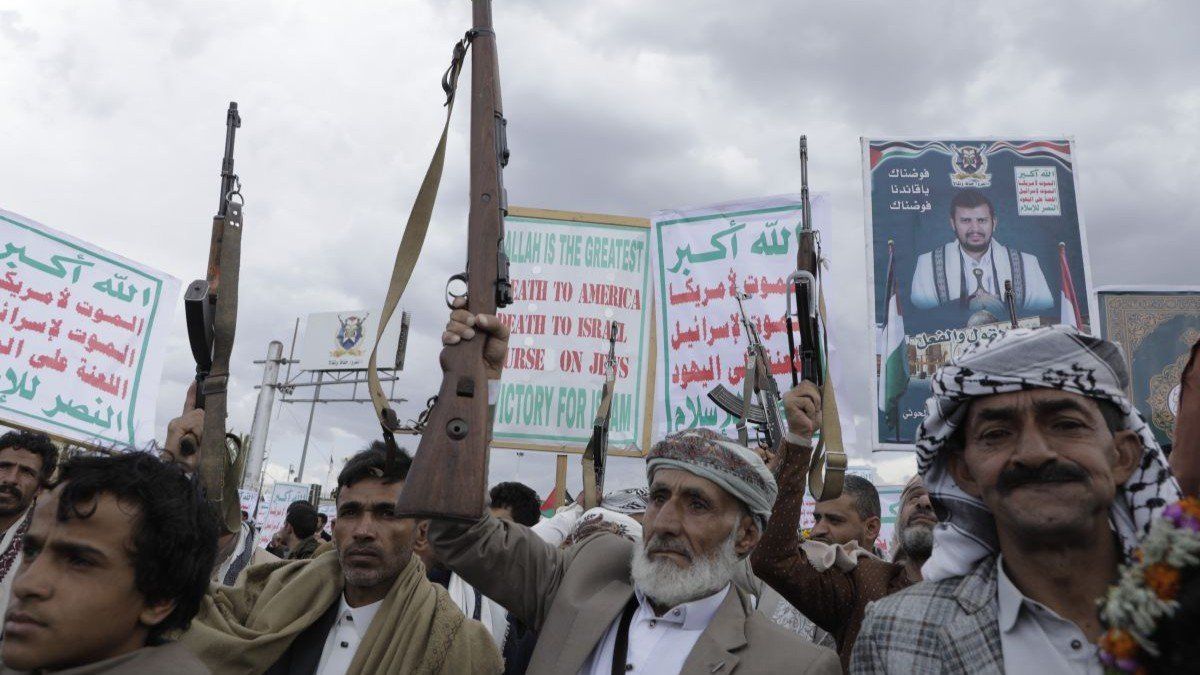President Donald Trump said this week the US campaign against the Houthis is done for now. “They have capitulated,” he said, “but more importantly… they say they will not be blowing up ships anymore.”
The Houthis from the Signal chat? The very same. The Trump administration in March ramped up bombings of the Iran-backed group – which controls much of Yemen – to stop its ongoing attacks on ships in the Red Sea, a critical global trade artery.
The Houthis began attacking ships in October 2023 in an act of solidarity with Hamas, protesting Israel’s war in Gaza.
Why did the Houthis stop? Not necessarily because of the US airstrikes alone, says Gregory Brew, an Iran expert at Eurasia Group.
“The US hit the Houthis dozens of times,” he said, “but failed to do serious damage to the group’s capabilities.”
Rather, Tehran reportedly pushed the Houthis towards the US pact, a positive sign for US-Iran relations, Brew says. The US and Iran meet for a fourth round of talks on Iran’s nuclear program this weekend.
Meanwhile: the Houthis and Israel continue to clash. Israel leveled Yemen’s main airport this week after a Houthi missile landed near Ben Gurion airport near Tel Aviv. Israel is, notably, excluded from the US-Houthi pact.
